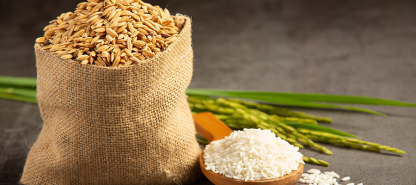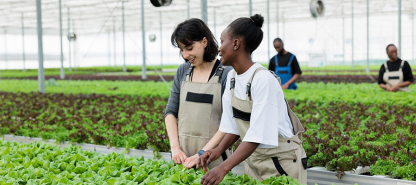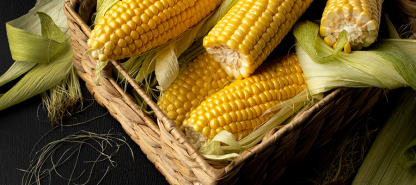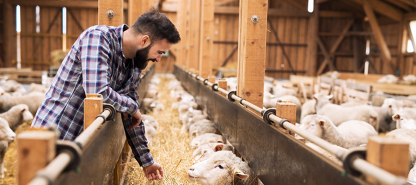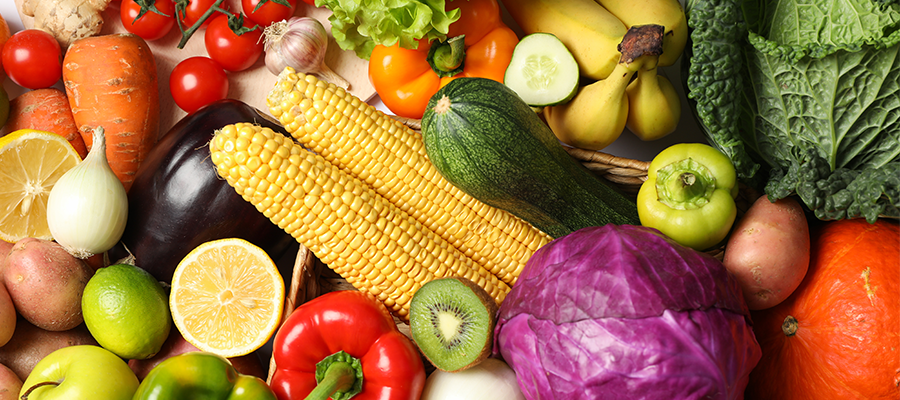
- 12 Jul 2025
The Promise of Sustainable Vegetable Farming: A Path to a Greener Agriculture
The Growing Importance of Sustainable Vegetable Farming
In an era where environmental concerns and food security are at the forefront of global discussions, sustainable vegetable farming has emerged as a vital solution. This agricultural approach prioritizes ecological balance, promoting practices that protect natural resources while ensuring a steady supply of nutritious food.
Sustainable vegetable farming minimizes the use of harmful chemicals and synthetic fertilizers, relying instead on organic methods, crop rotation, and integrated pest management. This not only enhances soil health and biodiversity but also produces vegetables that are free from harmful residues, benefiting both consumers and the environment.
As climate change poses challenges to traditional farming methods, sustainable practices offer resilience. Farmers adopting these techniques are better equipped to adapt to changing weather patterns, ensuring consistent yields. Furthermore, sustainable farming often emphasizes local food systems, reducing the carbon footprint associated with transportation and fostering community engagement.
The rise of consumer awareness regarding health and environmental issues has spurred demand for sustainably grown vegetables. People are increasingly seeking transparency in food production, leading to a greater emphasis on organic and locally sourced products. This shift not only supports farmers who embrace sustainable practices but also encourages more people to consider the ecological impact of their food choices.
The Benefits of Sustainable Vegetable Farming
Sustainable vegetable farming offers a multitude of benefits that extend beyond just producing food. Here are some key advantages:
1. Environmental Protection
Sustainable practices reduce reliance on synthetic pesticides and fertilizers, minimizing soil and water pollution. This helps protect local ecosystems and promotes biodiversity, fostering a healthier environment.
2. Soil Health
Techniques such as crop rotation, cover cropping, and composting improve soil structure and fertility. Healthy soil supports better water retention, reduces erosion, and enhances the nutrient profile of the vegetables grown.
3. Biodiversity Enhancement
Sustainable farms often promote a diverse range of crops and beneficial insects. This biodiversity can lead to natural pest control, reducing the need for chemical interventions and contributing to ecosystem stability.
4. Climate Resilience
By focusing on sustainable practices, farmers can better adapt to climate change impacts. Techniques such as agroforestry and conservation tillage help mitigate the effects of extreme weather, ensuring more stable yields.
5. Healthier Produce
Vegetables grown through sustainable methods are often richer in nutrients and free from harmful chemical residues. Consumers benefit from healthier food options, leading to improved overall health.
6. Economic Viability
Sustainable farming can lead to cost savings in the long run. By utilizing renewable resources and reducing input costs, farmers can enhance their profitability while also appealing to a growing market of eco-conscious consumers.
7. Community Engagement
Sustainable vegetable farming often emphasizes local food systems, fostering community connections. By supporting local farmers, communities benefit from fresher produce and strengthened local economies.
8. Education and Awareness
Sustainable practices encourage knowledge sharing and education about food systems, environmental stewardship, and nutrition. This can empower consumers to make informed choices about their food sources.
Investing in Sustainable Vegetable Farming Projects
Investing in sustainable vegetable farming projects is not only a socially responsible choice but also a financially promising one. As global demand for organic and sustainably produced food continues to rise, these investments can yield significant returns while contributing to environmental health and community well-being. Here are some key aspects to consider when investing in sustainable vegetable farming:
1. Market Demand
The shift towards healthier eating habits and environmental consciousness has driven demand for sustainably grown produce. Investors can tap into this growing market, which often commands higher prices and offers strong sales potential.
2. Environmental Impact
Investing in sustainable farming projects contributes to reducing carbon footprints and promoting biodiversity. By supporting eco-friendly practices, investors play a crucial role in combating climate change and protecting natural resources.
3. Resilience and Adaptability
Sustainable farming techniques, such as permaculture and regenerative agriculture, enhance resilience against climate variability. These methods help secure consistent yields, making projects less susceptible to the risks associated with traditional farming.
4. Community Development
Sustainable vegetable farming projects often engage local communities, creating jobs and supporting local economies. By investing in these initiatives, you help foster economic development and food security in underserved areas.
5. Innovation and Technology
The sustainable agriculture sector is ripe with innovation. From precision farming technologies to sustainable pest management solutions, investing in these advancements can lead to increased efficiency and productivity in vegetable farming.
6. Health and Nutrition
Supporting sustainable vegetable farming contributes to improved public health by providing access to fresh, chemical-free produce. This aligns with growing consumer awareness about nutrition and wellness, creating a robust investment opportunity.
7. Regulatory Support
Governments and international organizations increasingly support sustainable farming through grants, subsidies, and favorable policies. This regulatory backing can enhance the viability and profitability of investments in sustainable agriculture.
8. Long-Term Returns
While sustainable farming projects may require initial investment and patience, they often lead to long-term financial returns. As consumer preferences continue to shift towards sustainability, these projects can provide steady income streams over time.

